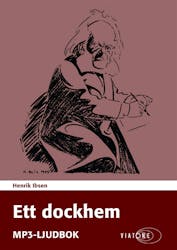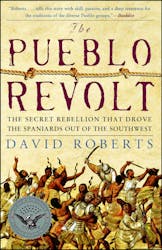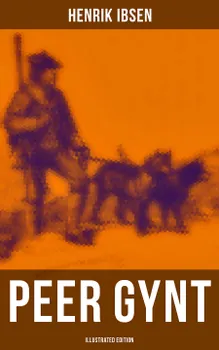Henrik Ibsen's 'Peer Gynt' is a seminal work of Scandinavian literature, blending realism and folkloric elements to tell the story of a brash and adventurous young man on a journey of self-discovery. The play is structured into five acts, each representing a different phase of Peer Gynt's life as he navigates the boundaries between reality and fantasy. Ibsen's vivid imagination and intricate character development make 'Peer Gynt' a rich and captivating read, engaging with existential themes and moral dilemmas that resonate with readers across generations. The play is also known for its lyrical prose and symbolic use of Norwegian folklore, contributing to its enduring popularity in the literary canon. Henrik Ibsen, often called the father of modern drama, drew inspiration for 'Peer Gynt' from Norwegian folklore and his own experiences living in a changing society. His keen observations of human nature and critique of societal norms are evident throughout the play, reflecting his commitment to social realism and psychological depth in his works. Ibsen's exploration of identity, morality, and the nature of truth in 'Peer Gynt' continues to inspire scholars and readers alike, cementing his place as one of the most influential playwrights of the 19th century. I highly recommend 'Peer Gynt' to readers interested in exploring the complexities of human existence through a masterful blend of realism and fantasy. Ibsen's timeless insights into morality, identity, and the nature of truth make this illustrated edition a must-read for anyone seeking a thought-provoking and visually stunning literary experience.

CLASSICS FOR SUMMERTIME : 150 Books: Romeo and Juliet, Emma, Vanity Fair, Middlemarch, Tom Sawyer, Faust, Notre Dame de Paris, Dubliners, Odyssey
Henry James, Edgar Allan Poe, H. P. Lovecraft, Lewis Wallace, William Shakespeare, John Milton, Jonathan Swift, Daniel Defoe, Henry Fielding, Laurence Sterne, Jane Austen, William Makepeace Thackeray, P. B. Shelley, Mary Shelley, John Keats, Charlotte Brontë, Emily Brontë, Anne Brontë, George Eliot, Charles Dickens, Thomas Hardy, Elizabeth von Arnim, D. H. Lawrence, Ann Ward Radcliffe, Bram Stoker, Arthur Conan Doyle, Joseph Conrad, Oscar Wilde, Lewis Carroll, Frances Hodgson Burnett, C. S. Lewis, George Weedon Grossmith, H. G. Wells, Willkie Collins, G. K. Chesterton, E. M. Forster, T. S. Eliot, James Joyce, George Bernard Shaw, W. B. Yeats, Sir Walter Scott, Robert Louis Stevenson, Kenneth Grahame, George MacDonald, J. M. Barrie, Mark Twain, Jack London, Herman Melville, Nathaniel Hawthorne, Louisa May Alcott, Willa Cather, Edith Wharton, Kate Chopin, Henry David Thoreau, Walt Whitman, Kahlil Gibran, Harriet Beecher Stowe, Frederick Douglass, James Fenimore Cooper, L. M. Montgomery, Homer, Plato, Apuleius, Marcus Aurelius, Johann Wolfgang von Goethe, Herman Hesse, Friedrich Nietzsche, Jules Verne, Marcel Proust, Victor Hugo, Gustave Flaubert, Gaston Leroux, Honoré de Balzac, Stendhal, Voltaire, Charles Baudelaire, Alexandre Dumas, Emile Zola, Henrik Ibsen, Leo Tolstoy, Fyodor Dostoyevsky, Ivan Turgenev, Anton Chekhov, Nikolai Gogol, Miguel de Cervantes, Benito Pérez Galdós, Pedro Calderon de la Barca, Dante, Giovanni Boccaccio, Niccolò Machiavelli, Rabindranath Tagore, Bankim Chandra Chatterjee, Kalidasa, Válmíki, Laozi, Sun Tzu, Confucius, Cao Xueqin, Princess Der Ling, Inazo Nitobé, Kakuzo Okakura, Soseki Natsume, Charlotte Perkins Gilman, F. Scott Fitzgerald, William Dean Howells, Washington Irving, L. Frank Baum, Theodor Storm, Juan Valera, Rudyard Kipling
book
50 Timeless Masterpieces (Volume 1) : Essential Classics for a Rich Literary Journey
Homer, Sun Tzu, Plato, Dante, Shakespeare, Miguel de Cervantes, John Milton, Daniel Defoe, Johann Wolfgang von Goethe, Jane Austen, Nikolai Gogol, Emily Brontë, Mary Shelley, Alexandre Dumas, Fyodor Dostoevsky, Charles Dickens, Victor Hugo, Nathaniel Hawthorne, Gustave Flaubert, Leo Tolstoy, Henrik Ibsen, Herman Melville, Mark Twain, Robert Louis Stevenson, Arthur Conan Doyle, Raymond Chandler, H. G. Wells, Joseph Conrad, Rudyard Kipling, Louisa May Alcott, L. Frank Baum, L. M. Montgomery, T. S. Eliot, Franz Kafka, James Joyce, Virginia Woolf, C. S. Lewis, Ernest Hemingway, Walt Whitman, Jack Kerouac, John Steinbeck, William Faulkner, Kate Chopin, Zora Neale Hurston, Margaret Mitchell, Sylvia Plath, Thomas Mann, Albert Camus, George Orwell
book
180 Masterpieces You Should Read Before You Die (Vol.2) : Life is a Dream, The Awakening, Babbitt, Strange Case of Dr Jekyll and Mr Hyde, Sense and Sensibility, A Tale of Two Cities, Dubliners, A Doll's House,Anne of Green Gables, The Hunchback of Notre Dame, Iliad & Odyssey...
Virginia Woolf, P. B. Shelley, Henrik Ibsen, Charles Dickens, James Joyce, Leo Tolstoy, Ford Madox Ford, E. M. Forster, Honoré de Balzac, Jane Austen, L. M. Montgomery, Kenneth Grahame, Rabindranath Tagore, George Weedon Grossmith, F. Scott Fitzgerald, Daniel Defoe, Jules Verne, Jonathan Swift, James Fenimore Cooper, George MacDonald, J. M. Barrie, Alexandre Dumas, Homer, Benito Pérez Galdós, Dante, William Dean Howells, Kakuzo Okakura, Gustave Flaubert, Victor Hugo, Stendhal, John Buchan, Edgar Wallace, William Walker Atkinson, Émile Coué, G. K. Chesterton, D.H. Lawrence, George Bernard Shaw, Joseph Conrad, Walter Scott, Anthony Trollope, Emile Zola, Theodor Storm, Harriet Beecher Stowe, Nathaniel Hawthorne, Henry Fielding, Jerome K. Jerome, Laurence Sterne, Thomas Hardy, Willa Cather, Edith Wharton, Kate Chopin, Sinclair Lewis, W. Somerset Maugham, Henry James, Ivan Turgenev, Nikolai Gogol, Pedro Calderon de la Barca, Johann Wolfgang von Goethe, Benjamin Franklin, Bankim Chandra Chatterjee, Edgar Allan Poe, Willkie Collins, Ann Ward Radcliffe, Bram Stoker, Gaston Leroux, H. G. Wells, Lewis Wallace, Washington Irving, Machiavelli, Fyodor Dostoyevsky, Confucius, Laozi, John Milton, W. B. Yeats, Elizabeth von Arnim, Cao Xueqin
book
90 Masterpieces You Must Read (Vol.2) : Novels, Poetry, Plays, Short Stories, Essays, Psychology & Philosophy: The Awakening, A Tale of Two Cities, Iliad & Odyssey,War and Peace, The Yellow Wallpaper, Fathers and Sons,The Prince, Peter and Wendy...
Charles Dickens, Jane Austen, Robert Louis Stevenson, Henrik Ibsen, Leo Tolstoy, Ford Madox Ford, E. M. Forster, Honoré de Balzac, Kenneth Grahame, Rabindranath Tagore, George Weedon Grossmith, F. Scott Fitzgerald, Daniel Defoe, Jules Verne, Jonathan Swift, James Fenimore Cooper, George MacDonald, J. M. Barrie, Alexandre Dumas, Homer, Dante, William Dean Howells, Kakuzo Okakura, Gustave Flaubert, Victor Hugo, Stendhal, Walter Scott, Anthony Trollope, Emile Zola, Theodor Storm, Harriet Beecher Stowe, Nathaniel Hawthorne, Henry Fielding, Jerome K. Jerome, Laurence Sterne, Thomas Hardy, Willa Cather, Edith Wharton, Kate Chopin, Sinclair Lewis, W. Somerset Maugham, Henry James, Ivan Turgenev, Nikolai Gogol, Virginia Woolf, Pedro Calderon de la Barca, Johann Wolfgang von Goethe, Friedrich Nietzsche, Benjamin Franklin, Bankim Chandra Chatterjee, Kalidasa, Válmíki, Edgar Allan Poe, Wilkie Collins, Ann Ward Radcliffe, Bram Stoker, Gaston Leroux, H. G. Wells, Joseph Conrad, Lewis Wallace, Washington Irving, Machiavelli, Fyodor Dostoyevsky, Confucius, Laozi, John Milton, P. B. Shelley, W. B. Yeats, Charlotte Perkins Gilman, D.H. Lawrence, George Bernard Shaw, Elizabeth von Arnim, Cao Xueqin, G. K. Chesterton, John Buchan, Edgar Wallace, Nikolai Leskov, Kurt Vonnegut, William Walker Atkinson, Émile Coué
book
Ett dockhem
Henrik Ibsen
audiobook
A Dolls House : Full Cast Drama
Henrik Ibsen
audiobook
Ett dockhem (lättläst)
Henrik Ibsen
book
Masterpieces of Tragedies and Comedies
Euripides, Sophocles, Aeschylus, William Shakespeare, Henrik Ibsen, Anton Chekhov, Bernard Shaw
audiobookbook
101 Libros Imprescindibles Para Leer En Tu Vida
Franz Kafka, Lewis Carroll, Henrik Ibsen, Mark Twain, Immanuel Kant, Harriet Beecher Stowe, Oscar Wilde, Robert Louis Stevenson, Edgar Allan Poe, William Shakespeare, Dante Alighieri, Giovanni Boccaccio, Bram Stoker, Emily Brontë, Jack London, Victor Hugo, Arthur Conan Doyle, Jane Austen, Herman Melville, Gustavo Adolfo Bécquer, Vicente Blasco Ibáñez, Benito Pérez Galdós, Jean-Jacques Rousseau, Washington Irving, Juan Valera, Horacio Quiroga, Charles Baudelaire, Voltaire, Leopoldo Alas, John Milton, José Martí, Rubén Darío, Antonio Machado, Emilia Pardo Bazán, L. Frank Baum, H. G. Wells, H. P. Lovecraft, Seneca, Hans Christian Andersen, Friedrich Nietzsche, Mary Shelley, Sófocles, Sun Tzu, Antón Chéjov, León Tolstoi, Tomás Moro, San Agustín, Julio Verne, Homero, Platón, Hermanos Grimm, Jorge Isaacs, Ignacio de Loyola, Nicolás Maquiavelo, Miguel Cervantes, Teresa de Jesús, Miguel De Unamuno, Duque de Rivas, Ramón María del Valle-Inclán, Federico García Lorca, Gibrán Jalil Gibrán
book
The Greatest Feminist Classics in One Volume : Including 100+ Biographies & Memoirs of the Most Influential Women in History
Henrik Ibsen, Charlotte Brontë, Marietta Holley, Henry James, Louisa May Alcott, John Stuart Mill, Zona Gale, Jane Austen, Thomas Hardy, Edith Wharton, Gene Stratton-Porter, Rebecca Harding Davis, Margaret Fuller, Elizabeth Cady Stanton, Elia Wilkinson Peattie, Virginia Woolf, Mary Wollstonecraft, Willa Cather, Nathaniel Hawthorne, Mary Johnston, Grant Allen, Theodore Dreiser, Kate Chopin, Sojourner Truth, Charlotte Perkins Gilman, Harriet Martineau, Fanny Burney, Mary Ware Dennett, Julia Ward Howe, Ada Cambridge, H. G. Wells, Sarah H. Bradford, D. H. Lawrence, Nikolai Leskov, Lucy Maud Montgomery, Leo Tolstoy, Margaret Deland, Elizabeth Gaskell, Margaret Oliphant, Margaret Mitchell, Elizabeth von Arnim, Elizabeth Burgoyne Corbett
book
101 Libros Imprescindibles Para Leer En Tu Vida
Sun Tzu, Teresa de Jesús, Mark Twain, Julio Verne, Friedrich Nietzsche, Lewis Carroll, L. Frank Baum, Franz Kafka, Voltaire, Victor Hugo, Ignacio de Loyola, Nicolás Maquiavelo, Homero, Benito Pérez Galdós, Platón, León Tolstoi, Antón Chéjov, Arthur Conan Doyle, Jane Austen, Emily Brontë, Robert Louis Stevenson, Oscar Wilde, Mary Shelley, Bram Stoker, H. G. Wells, Edgar Allan Poe, H. P. Lovecraft, Washington Irving, Harriet Beecher Stowe, Herman Melville, Jack London, Seneca, San Agustín, Dante Alighieri, Giovanni Boccaccio, Miguel Cervantes, Hans Christian Andersen, Hermanos Grimm, William Shakespeare, John Milton, Tomás Moro, Jean-Jacques Rousseau, Immanuel Kant, Federico García Lorca, Sófocles, Vicente Blasco Ibáñez, Juan Valera, Leopoldo Alas, Miguel De Unamuno, Emilia Pardo Bazán, Duque de Rivas, José Martí, Antonio Machado, Ramón María del Valle-Inclán, Jorge Isaacs, Horacio Quiroga, Gustavo Adolfo Bécquer, Rubén Darío, Charles Baudelaire, Henrik Ibsen, Gibrán Jalil Gibrán
book
A Doll's House
Henrik Ibsen
audiobookbook

Conscious Evolution
Barbara Marx Hubbard
audiobook
Trucos Fotográficos : Creatividad con tu móvil y tu cámara
Gianfranco Bulgarelli
book
Domina tu cámara : Descubre los secretos de la fotografía digital
Jaime de Diego
book
The Pueblo Revolt: The Secret Rebellion That Drove the Spaniards Out of the Southwest
David Roberts
book
Un ramo de rosas rojas y una foto : Variaciones sobre el proceso del POUM
Pepe Gutiérrez Álvarez
book
Religion in the Roman Empire
book
Passover Haggadah : As Commented Upon By Elie Wiesel and Illustrated b
Elie Wiesel
book
El hombre más rico de Babilonia
George S Clason
book
Praying For Children against Satanic Attack
Tella Olayeri
book
Pig Tales
Barry Estabrook
audiobook
The Dabbler's Guide to Witchcraft : Seeking an Intentional Magical Path
Fire Lyte
audiobookbook
The Mysticism Of The Egyptian Book Of The Dead :
Unknown
audiobook
